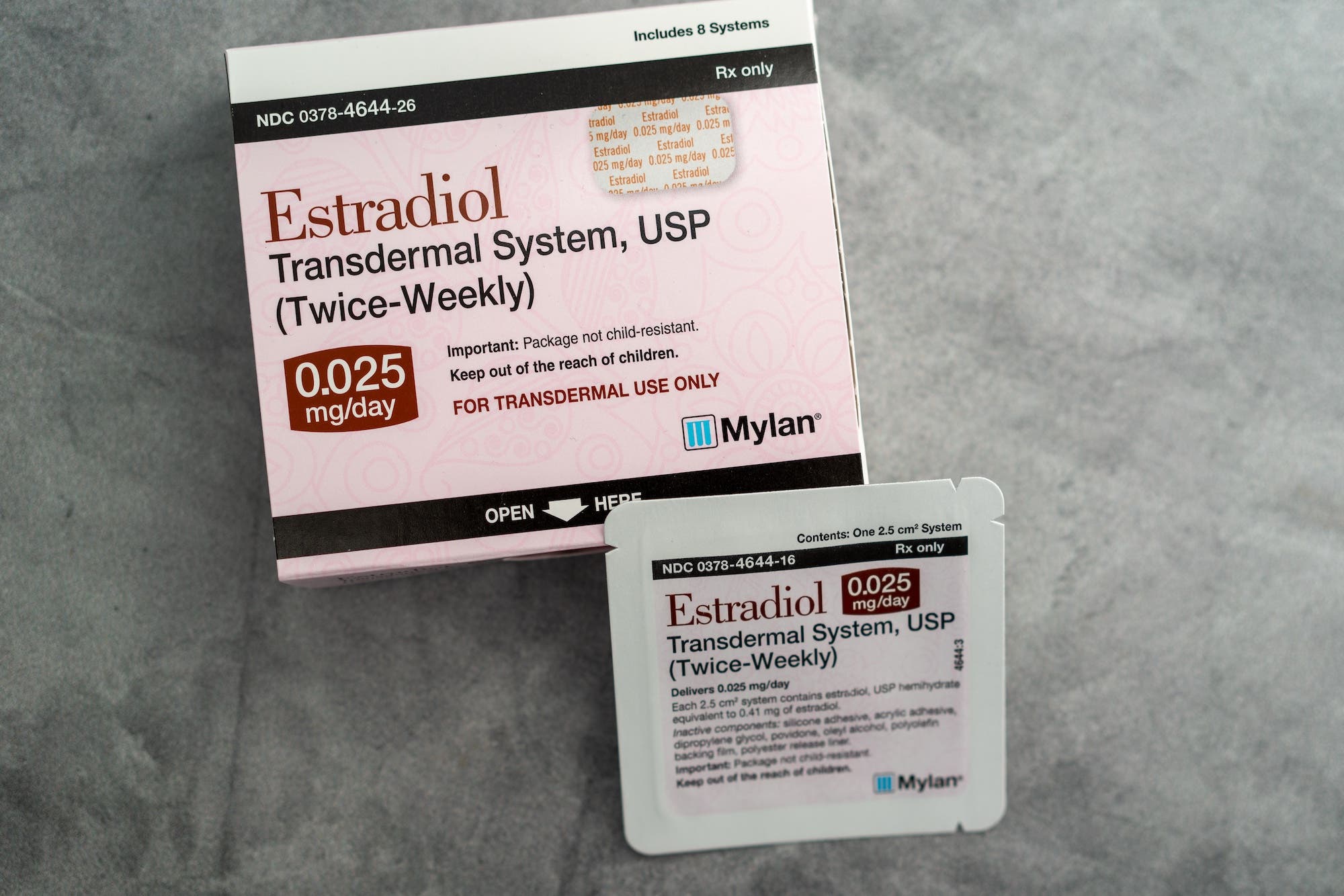In a recent study, researchers found the pesticide glyphosate — commonly used on crops like oats — in more than half of semen samples they tested. This study suggests the chemical could have an impact on male fertility. Is glyphosate harmful to human health? Does glyphosate have an effect on sperm? Here’s what the science says.
Key takeaways
- Glyphosate is the most commonly used herbicide (weed killer) in the world. It’s the active ingredient in Roundup.
- We’re exposed to glyphosate through diet, contact, and breathing in particles. Fruits, fruit juices, vegetables, and cereals are possible sources of glyphosate.
- Some studies suggest that glyphosate may act as an endocrine disruptor, and could be toxic to structures in the testicles responsible for sperm production.
- In new research, French researchers found glyphosate in 57% of semen samples they tested, suggesting “a negative impact on human reproductive health and possibly on progeny.”
What is glyphosate?
Glyphosate is an herbicide, or weed killer. (Herbicides are a type of pesticide.) This chemical is the active ingredient in Monsanto’s Roundup.
Glyphosate kills certain weeds and grasses by blocking an enzyme required for them to grow. Used most often in agriculture and for lawn and garden care, it’s the most popular weed killer in the world.1 Glyphosate also has other uses in the agriculture; for example, oats are frequently sprayed with glyphosate before harvesting to dry them and speed up the harvest process.2
How are humans exposed to glyphosate?
Glyphosate exposure is extremely common in the US. One study determined that 81% of Americans had been exposed to the chemical.3 In another, 87% of children had measurable levels of glyphosate in their urine.4
Humans are exposed to glyphosate through diet, contact, or breathing in particles. Fruits, fruit juices, vegetables and cereals are possible sources of glyphosate.5 In one study, scientists found traces of glyphosate in every commercial cereal brand they tested.6
Is glyphosate harmful to human health?
Some research has connected glyphosate to health risks, including cancer, nervous system damage, and endocrine disruption.7,8 Endocrine-disrupting chemicals are chemicals that interfere with our hormone systems, potentially affecting metabolism, puberty, and fertility. A 2021 review found that glyphosate satisfied eight key characteristics of an endocrine disruptor, cautioning that “studies are still needed to elucidate the real effects [of glyphosate on] the human endocrine system.”9
Learn more about endocrine-disrupting chemicals and male fertility.
In 2015, the WHO’s International Agency on the Research for Cancer said that glyphosate was “potentially carcinogenic to humans,” particularly in regard to non-Hodgkin’s lymphoma.10 The Environmental Protection Agency made a similar declaration in 1985, but reversed it in 1991.
Today, the EPA’s official position is “there is no evidence that glyphosate causes cancer in humans” or is an endocrine disruptor.11 But controversy remains, and thousands of lawsuits claiming glyphosate causes cancer have been settled or are in progress.
Study finds glyphosate in over half of semen samples
New research has scientists ringing an alarm. In June 2024, French researchers found glyphosate in more than half of semen samples from infertile men. Researchers also found higher levels of oxidative stress in samples that tested positive for glyphosate, suggesting the chemical could be a contributor to infertility.12
Here’s how the study worked: scientists examined semen samples from 128 male partners of infertile couples. The researchers were looking for the presence of glyphosate (GLY) as well as semen parameters and other markers of sperm health. They also took blood samples on the same day.
Researchers found glyphosate in 57% of samples studied (73 out of 128). On average, glyphosate levels were four times higher in semen than in blood, a discovery the researchers called “worrying.”
Sperm count, motility, and morphology weren’t significantly different in samples with glyphosate than those without. However, the researchers observed a higher level of oxidative stress (OS) in those with glyphosate. In the simplest of terms, oxidative stress is a condition caused by unstable molecules known as free radicals, which can damage the DNA inside our cells.
“It’s a matter of concern for the future generations to have detected such an elevated proportion of GLY associated with OS in sperm in our infertile population,” the scientists wrote. “Taken together, our results suggest a negative impact of GLY on the human reproductive health and possibly on his progeny.” The scientists concluded that more research is needed to understand the relationship between glyphosate and sperm.
Learn more about oxidative stress and male fertility.
Interestingly, there was no significant difference in glyphosate exposure between men who lived in the city or the countryside, or between men who did or didn’t eat organic food (which is presumably not treated with chemical pesticides).
How glyphosate might impact male fertility
This study is the first to find glyphosate in sperm samples from humans, but animal studies have also examined the impact of glyphosate on male fertility. Researchers noted that in past animal studies, glyphosate affected antioxidant levels in the testes and impaired sperm quality by killing the germ cells involved in sperm production.
Other research on glyphosate has found that it may act as an endocrine disruptor by altering the function of hormones like estrogen and testosterone.9,13
According to a 2023 review of studies published in the journal Environmental Toxicology and Pharmacology, evidence suggests glyphosate-based herbicides “act as endocrine-disrupting chemicals, altering sex hormone levels” and interfering with hormone signaling pathways.13 Researchers found that glyphosate exposure was associated with changes in both male and female reproductive systems, “potentially leading to reproductive toxicity.”
Still other studies have found that glyphosate may be toxic to structures in the testicles that are involved in making sperm.
- A 2012 animal study found that glyphosate was toxic to germ cells and Leydig cells in the testicles (which are involved in producing sperm and testosterone, respectively).14
- A 2018 study found that sperm exposed to high concentrations of glyphosate in a lab setting — much higher than regular environmental exposure — suffered impaired motility.15
- Similarly, a 2021 study found that sperm exposed to glyphosate in the lab had lower motility and viability.16
However, no studies have yet confirmed that exposure to glyphosate in day-to-day life — such as through our diets — can impact sperm quality. More research is needed.
Can you test your sperm for pesticides like glyphosate?
Unfortunately, no test is currently available that allows you to easily understand if your own semen contains pesticides like glyphosate.
The best way to understand if your sperm production is at risk is with a semen analysis. In this simple test, a lab scientist examines a sample of your semen to assess your sperm count and the overall health of your sperm. Although a semen analysis can’t detect specific pesticides, it can give you an overall picture of where your fertility stands.
Advanced sperm testing — like Legacy’s Advanced Semen Analysis with DNA fragmentation testing — can also detect damage to the DNA carried by your sperm. DNA fragmentation happens as a result of oxidative stress, like the stress seen in semen affected by pesticides.
Learn more about semen analysis.
How to avoid glyphosate exposure
To avoid exposure to potentially harmful pesticides like glyphosate, consider your diet and lifestyle.
- Eat organic. While this study didn’t find a correlation between organic diets and glyphosate levels, studies by the Environmental Working Group (EWG) have found that glyphosate levels in conventional packaged foods can be many times higher than levels in organic options.17
- Wash your fruits and veg. Studies have shown that a simple soak in baking soda may be the most effective way to remove pesticide residue from produce.18
- Don’t use weed killers in your own home and yard. If you must remove weeds, use old-fashioned methods like vinegar, salt, or a little elbow grease. We have good news — gardening is good for your sperm.
References
1. Benbrook et al. “Trends in glyphosate herbicide use in the United States and globally,” 2016.
4. Environmental Working Group. “CDC finds toxic weedkiller in 87 percent of children tested,” 2022.
9. Muñoz et al. “Glyphosate and the key characteristics of an endocrine disruptor: A review,” 2021.
11. U.S. Environmental Protection Agency. “Glyphosate,” 2023.
16. Velasquez et al. “The Effect of Glyphosate on Human Sperm: In Vitro Approximation,” 2021.
17. Environmental Working Group, “EWG’s guide to avoiding glyphosate in food.”18. Yang et al, “Effectiveness of Commercial and Homemade Washing Agents in Removing Pesticide Residues on and in Apples.” 2017.



